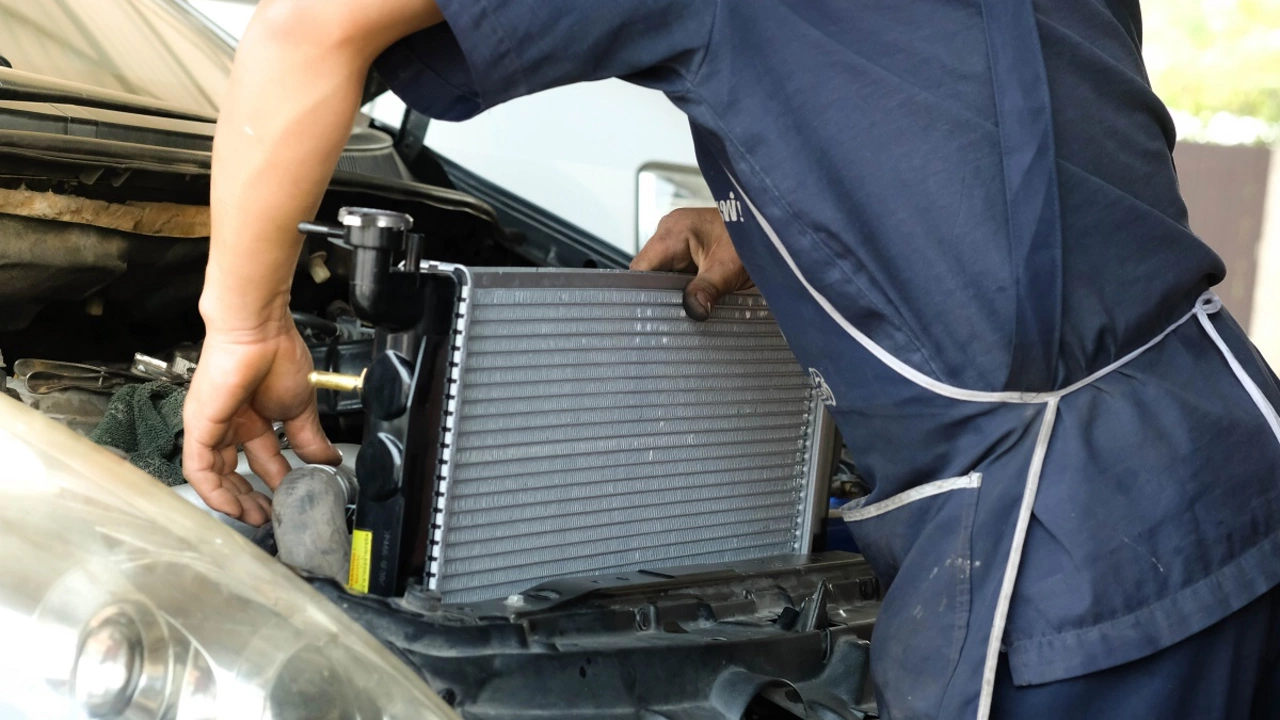Understanding the Role of a Car Radiator
Before we delve into the implications of having an object in your car radiator, it's important to understand the role of the radiator itself. The radiator is a critical component of your car's cooling system. It works by dissipating the heat generated by the engine, thereby preventing overheating. It does this by circulating coolant (or antifreeze) through the engine, absorbing the heat, and then carrying it away to the radiator where it is cooled off. This process is vital for the optimal functioning of your vehicle.
Under normal circumstances, the coolant should flow freely through the system. However, if there is an object in your radiator, this can disrupt the flow of coolant and potentially cause serious problems. The object could be anything from a piece of debris to a build-up of rust or sediment. Regardless of what it is, it's essential to address the issue promptly to avoid damaging your engine. Now, let's unpack the implications of an object in your car radiator.
Overheating of the Engine
The most immediate implication of having an object in your car radiator is the risk of your engine overheating. As I mentioned earlier, the radiator is responsible for cooling down the engine. However, if there's an obstruction, the coolant cannot circulate properly and absorb the heat. As a result, the engine may overheat, causing it to malfunction or, worse, get seriously damaged. Overheating can lead to expensive repairs, and in some cases, it may even require a complete engine replacement.
Signs of an overheating engine are not always immediately apparent. It might start with your car's temperature gauge reading higher than usual or the check engine light coming on. You might also notice a reduction in your vehicle's performance or unusual noises coming from the engine. If you notice any of these signs, it's crucial to check your radiator and cooling system immediately.
Damage to the Radiator
An object in your car radiator can cause physical damage to the radiator itself. The radiator is made up of a series of tubes and fins designed to maximize surface area for cooling. An object lodged in one of these tubes could cause it to crack or rupture, leading to a coolant leak. Once a radiator starts leaking, its efficiency is compromised, and it will need to be repaired or replaced.
Signs of a damaged radiator may include visible coolant leaks under your car, a drop in coolant levels, or a persistently overheating engine. If you suspect your radiator is damaged, it's best to get it checked out by a professional as soon as possible to prevent further damage to your vehicle.
Impaired Vehicle Performance
Another significant implication of an object in your car radiator is impaired vehicle performance. As the engine overheats due to the restricted coolant flow, its performance can deteriorate. This can manifest in several ways, such as decreased acceleration, increased fuel consumption, or erratic engine behavior. In severe cases, it can even lead to engine failure.
It's important to note that these symptoms can also be caused by other issues, so it's essential to get your car checked out by a professional if you notice any changes in performance. They will be able to diagnose the problem and recommend the best course of action.
Prevention and Maintenance Tips
Now that we've covered the implications of an object in your car radiator, let's talk about prevention and maintenance. The best way to prevent objects from getting into your radiator is to regularly check and clean your cooling system. This includes checking the coolant level and color, as well as flushing the system as recommended by your vehicle's manufacturer.
If you discover an object in your radiator, don't attempt to remove it yourself unless you have the necessary skills and tools. Instead, take your car to a professional mechanic who can safely remove the object and assess any potential damage. Regular vehicle maintenance and prompt attention to any issues can help prevent serious damage and keep your car running smoothly.
